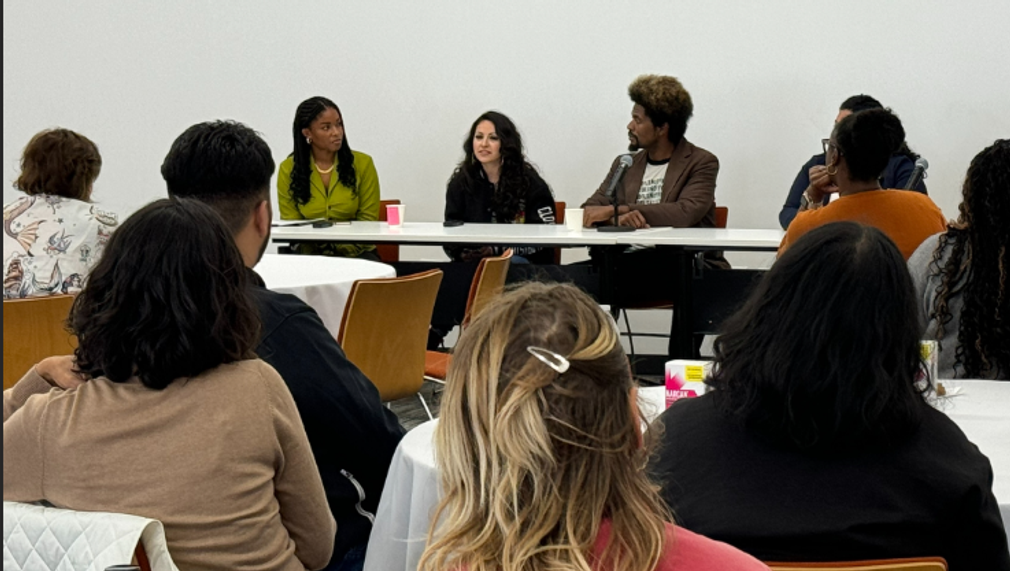Changing the Narrative: Youth Mental Health and Substance Use
Children Now will launch a community-based learning campaign to elevate youth voices and experiences in response to the urgent mental health and addiction issue in Los Angeles County. By working directly with youth to better understand the bi-directional relationship between youth emotional wellness and substance use, Children Now will strengthen efforts for county-wide policy changes to provide more supportive environments for young people who struggle with addiction.

What is the primary issue area that your application will impact?
Mental health
In what stage of innovation is this project, program, or initiative?
Pilot or new project, program, or initiative (testing or implementing a new idea)
What is your understanding of the issue that you are seeking to address?
Understanding the link between substance use and mental health is crucial to creating supportive environments for LA youth struggling with these issues. About 60-75% of adolescents with substance use disorders (SUD) also have mental illnesses. LA Unified School Mental Health reports that 21% of youth ages 13-18 have a mental illness significantly impacting their daily lives, and a 2019 CDC survey found that 13% of LA teens seriously considered suicide.
Nearly 1 in 6 11th graders in LA are using alcohol and drugs, posing a serious public health concern. Youth ages 18-25 in California have the highest SUD rate among all age groups, and overdose deaths have risen due to the presence of fentanyl in usually non-fatal drugs.
Public beliefs in individual choice and responsibility often prevent effective public health responses and hinder advocacy. Children Now’s project aims to shift perceptions to improve prevention, early intervention, and treatment services for LA youth ages 12-25.
Describe the project, program, or initiative this grant will support to address the issue.
Children Now aims to shift perceptions around drugs and young users to ultimately improve prevention, early intervention, and treatment services to better support youth in LA ages 12-25. Children Now will work directly with youth in LA to hear how they describe their challenges with drugs and alcohol, and then use those learnings to inform a communications and advocacy strategy targeted at the general public and policymakers around efforts to reduce and/or eliminate substance abuse among youth.
Building on our longstanding connector advocacy model that centers and publicizes community voices, Children Now will host listening sessions, focus groups, and interviews with LA youth organizations, prioritizing the voices of youth of color and youth from low-income families, to elevate their experiences with substance abuse and the inter-connected mental health challenges in our efforts to change public and policymaker perceptions. We will build on our existing relationships to bring LA-based youth groups together, and we will analyze, publish, and circulate our findings widely with policymakers, a range of stakeholders, and the general public through our established connections throughout the County. These learnings will be critical to accurately representing the needs of youth, demonstrating the connection between substance use and mental health, and effectively advocating for county-wide, comprehensive, youth-focused, and culturally responsive prevention and treatment efforts.
Describe how Los Angeles County will be different if your work is successful.
Our vision for success includes the widespread implementation of youth-focused, culturally responsive prevention, early intervention, and treatment programs designed with youth, for youth. As a result of our campaign to elevate youth lived experiences and change the perceptions of policymakers and the general public, we envision a future where schools and communities adopt public health approaches to youth substance use, reducing punitive measures that disproportionately target students of color to instead provide supportive, empathetic interventions. Public and policymaker perception will evolve to recognize the complex reasons behind youth substance use and the interconnected mental health challenges youth face, fostering more understanding, effective community response, and improved access to mental health services for youth.
Ultimately, this project aims to reduce overdose deaths, mitigate the school-to-prison pipeline, and foster a healthier, more resilient youth population in LA.
What evidence do you have that this project, program, or initiative is or will be successful, and how will you define and measure success?
This is an early-stage project that builds on several past Children Now efforts that engaged community members in focus groups, disseminated findings, and launched successful advocacy campaigns informed by the findings. Through this history of work, we have identified best practices and collected valuable feedback from participants that we will employ throughout this current project. Success in this project will be measured by:
The number of youth organizations and/or individual youth who share their experiences via focus groups, listening sessions, or survey participation.
The number of policymakers, organizations, media outlets, and members of the public who receive our written analysis of youth experiences.
Approximately how many people will be impacted by this project, program, or initiative?
Direct Impact: 40.0
Indirect Impact: 1,911,493.0